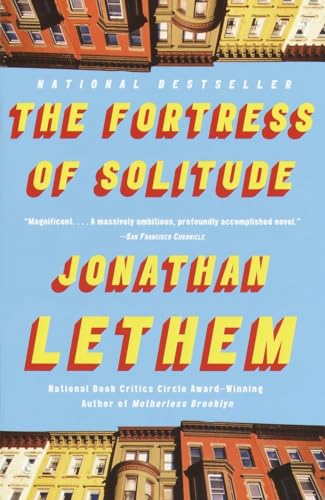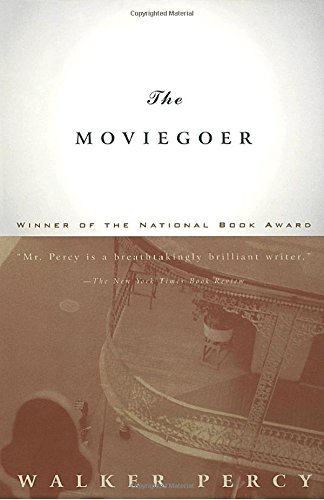 1.
1.
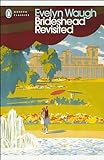 Sebastian Flyte, the eccentric drunkard at the heart of Evelyn Waugh’s novel Brideshead Revisited, after describing the degrees of religious devotion in his English Catholic family, finally confesses to Charles Ryder:
Sebastian Flyte, the eccentric drunkard at the heart of Evelyn Waugh’s novel Brideshead Revisited, after describing the degrees of religious devotion in his English Catholic family, finally confesses to Charles Ryder:
“…I wish I liked Catholics more.”
“They seem just like other people.”
“My dear Charles, that’s exactly what they’re not — particularly in this country, where they’re so few… everything they think important is different from other people. They try and hide it as much as they can, but it comes out all the time.”
There was a time in the middle of the 20th Century when Catholic writers, many of them converts to the Church, were icons of the Anglo-American literary scene. In the U.K. writers like Waugh, Graham Greene, Muriel Spark, and J. R. R. Tolkien were preeminent, while Americans Flannery O’Connor, Walker Percy, J.F. Powers (his novel Morte D’Urban won the National Book Award in 1963), and Thomas Merton were celebrated on this side of the Atlantic.
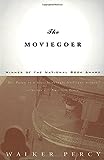 Percy, whose novel The Moviegoer won the 1962 National Book Award, in a way articulated a Catholic artistic vision when he described his pursuit of “…A theory of man, man as more than organism, more than consumer – man the wayfarer, man the pilgrim, man in transit, on a journey.”
Percy, whose novel The Moviegoer won the 1962 National Book Award, in a way articulated a Catholic artistic vision when he described his pursuit of “…A theory of man, man as more than organism, more than consumer – man the wayfarer, man the pilgrim, man in transit, on a journey.”
Yet despite such a rich Catholic literary heritage with many contemporary admirers — one can’t help thinking of how passionately the MFA/Creative Writing/Workshop establishment venerates the stories of Flannery O’Connor — there has not been a new generation of Catholic writers to take up Percy’s vision, one where their inherent “otherness” is not edged to the margins, but is at the very heart of their craft.
The obvious reason for this literary vacuum is that the Christian faith, and the Catholic Church in particular, have been in full-cultural retreat since the 1960s. In the wake of the sexual revolution and the women’s movement, many Catholics left the Church over its opposition to abortion, artificial contraception, and the ordination of women, to name just a few hot-button topics. And then, beginning in the late 1990s, a wave of priest sex-abuse crimes came to light that have scandalized untold numbers of Catholics.
Yet there was another revolution in the 1960s — an internal Catholic one — that was in many ways as profound as the one taking place in the streets of Paris, New York, and London. It was a liturgical revolution, and it impacted each and every Catholic at that most fundamental unit of faith — Sunday morning Mass.
2.
In 2007, Pope Benedict XVI released the document Summorum Pontificum. Benedict’s Apostolic Letter got little attention outside of Catholic circles, but within the Church it was headline news: with the stroke of a pen, the Pope gave permission for parishes worldwide to again celebrate the so-called “Latin Mass,” or Tridentine Mass as it’s officially known. So after a four-decade absence the ancient Mass that Dante, Mozart, Montaigne, and Michelangelo knew so well, the Mass whose liturgical prayers and hymns were the well-spring of western classical music, was once more in front of Catholics.
In the 1960s, when Evelyn Waugh learned of plans to alter the Latin Mass, he wrote a series of worried letters to then English Archbishop John Cardinal Heenan. In the wake of the Second Vatican Council (1962-1965), Waugh’s worst fears were realized as English replaced Latin, priests suddenly faced the people (as if to entertain them), and the reverential tradition of kneeling at the altar rail to receive communion on one’s tongue was replaced with the breezy practice of taking the host standing and in the hand. In short, what for centuries had seemed eternal, mysterious, and rich in symbolism — the very marrow that feeds artists — was suddenly being conducted in the same language as sitcoms, TV commercials, and business meetings.
 The German Catholic novelist Martin Mosebach in his 2003 book of essays, The Heresy of Formlessness, argues that the reform of the Latin Mass in the ‘60s left many believers, like Waugh, with a profound spiritual deficit. “All have lost something priceless,” he writes, “namely, the innocence that accepts (the Mass) as something God-given, something that comes down to man as a gift from heaven.”
The German Catholic novelist Martin Mosebach in his 2003 book of essays, The Heresy of Formlessness, argues that the reform of the Latin Mass in the ‘60s left many believers, like Waugh, with a profound spiritual deficit. “All have lost something priceless,” he writes, “namely, the innocence that accepts (the Mass) as something God-given, something that comes down to man as a gift from heaven.”
Mosebach believes that even James Joyce, who was no fan of the Catholic Church, owed his “rank linguistic extravagance” to the rituals and language of the Latin Mass. In the opening passages of Ulysses there is even a reference to the psalm “Judica,” which is prayed at the start of the old Mass. “Ulysses could never have been written without the old liturgy; here we sense the liturgy’s immense cultural and creative power,” Mosebach writes. “Even its opponents could not avoid being in its shadow; they actually depended for nourishment on its aesthetic substance.”
During the 40-year absence of the Latin Mass it has become clear that novels — both by Catholics and non-Catholics — grappling with what used to be called “the drama of salvation” are no longer just rare, but almost unthinkable nowadays. The novelist Jonathan Lethem, who is not Catholic, brilliantly captured the attitude of contemporary writers toward “eternal questions” during a recent spat with literary critic James Wood (Lethem took issue with elements of Wood’s review of The Fortress Of Solitude):
Can Wood’s own negative capability not reach the possibility that in some life dramas “God” never made it to the audition, let alone failed to get onstage? Pity me if you like, but I can’t remember even considering believing in either God or Santa Claus.
In the years since the suicide of David Foster Wallace, much has been made of his personal struggles: his battle with addiction, his appetite for self-help books, as well as his desire to write in a more emotionally communicative manner, and not rely exclusively on his immense intellectual and verbal acumen, or what he called “witty arty writing” in a letter to his former girlfriend, the memoirist Mary Karr.
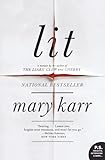 Evan Hughes, in a New York magazine article on Wallace, Jonathan Franzen, and Jeffrey Eugenides, wrote that Wallace, at the end of his life, “quietly sought out spiritual answers and flirted with joining the Catholic Church.” And if this comes as a surprise, it should be noted that Karr later became Catholic, chronicling her conversion in the book Lit: A Memoir.
Evan Hughes, in a New York magazine article on Wallace, Jonathan Franzen, and Jeffrey Eugenides, wrote that Wallace, at the end of his life, “quietly sought out spiritual answers and flirted with joining the Catholic Church.” And if this comes as a surprise, it should be noted that Karr later became Catholic, chronicling her conversion in the book Lit: A Memoir.
And while it’s tempting to think of what a writer of David Foster Wallace’s caliber, like James Joyce before him, would have gleaned from the immense cultural patrimony of the Catholic Church and the Mass, it’s anyone’s guess whether the reemergence of the Latin Mass will spark a Catholic literary renaissance. In the end, searing inquiries into the nature of man and his place vis-à-vis the Divine always comes down to belief of one kind or another, and that’s precisely what puzzled Waugh’s character Charles Ryder about his friend Sebastian in Brideshead Revisited:
“But my dear Sebastian, you can’t seriously believe it all.”
“Can’t I?”
“I mean about Christmas and the star and the three kings and the ox and the ass.”
“Oh yes, I believe that. It’s lovely idea.”
“But you can’t believe things because they’re a lovely idea.”
“But I do. That’s how I believe.”
Image credit: kainr/Flickr

